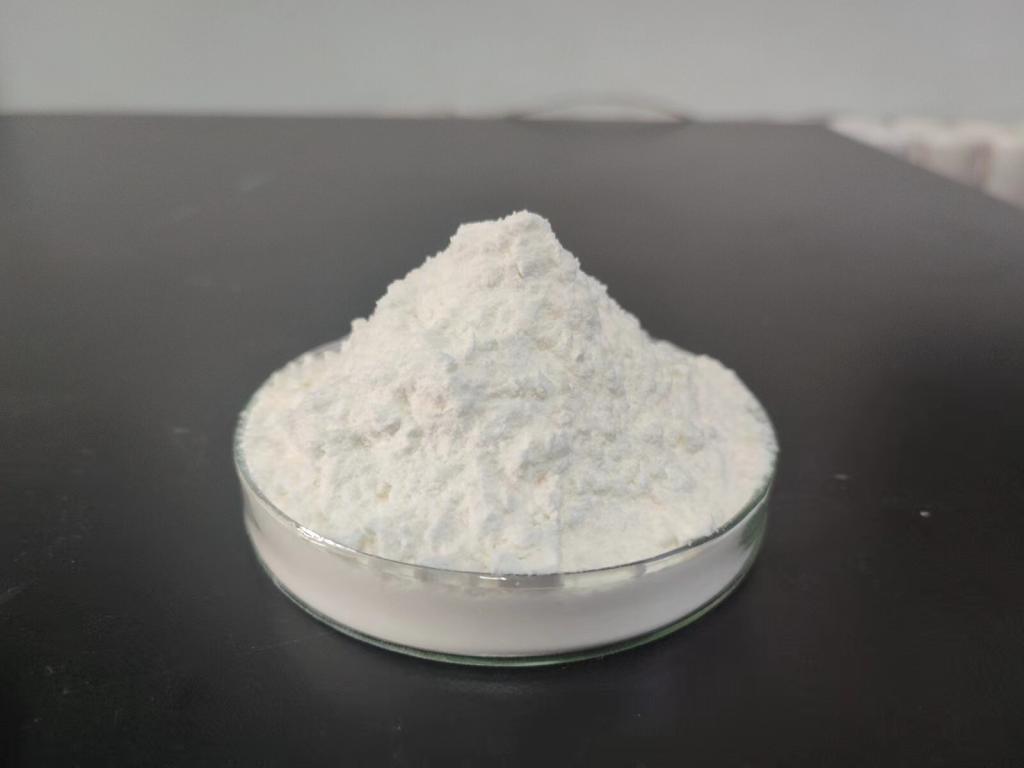Tel:+8618231198596

News
 CONTACT
CONTACT
 CONTACT
CONTACT
- Linkman:Linda Yao
- Tel: +8618231198596
- Email:linda.yao@dcpharma.cn
- Linkman:CHARLES.WANG
- Department:Overseas
- Tel: 0086 0311-85537378 0086 0311-85539701
News
Current Position:
Home >
News
>Sustainable Agriculture Practices: ε-Polylysine Hydrochloride for Soil Health
Sustainable Agriculture Practices: ε-Polylysine Hydrochloride for Soil Health
TIME:2024-03-06
The Importance of Sustainable Agriculture
1. Ecosystem Resilience
Sustainable agriculture aims to maintain the resilience of ecosystems by avoiding practices that deplete natural resources or harm biodiversity. It seeks to strike a balance between meeting current agricultural needs and preserving the environment for future generations.
2. Resource Conservation
Efficient use of resources, such as water and energy, is a key principle of sustainable agriculture. By optimizing resource management, this approach minimizes environmental impact while ensuring economic viability for farmers.
Soil Health: The Foundation of Sustainable Agriculture
1. Nutrient Cycling
Healthy soil facilitates the cycling of essential nutrients, providing plants with the elements needed for growth. Nutrient-rich soil is fundamental to the development of robust and nutritious crops.
2. Water Retention
Well-structured soil with good organic content enhances water retention capacity. This is crucial, especially in regions prone to drought, as it ensures a steady water supply for crops.
3. Biodiversity Support
A thriving soil ecosystem supports a diverse community of microorganisms, contributing to biodiversity above and below the ground. This diversity is essential for pest control, disease resistance, and overall ecosystem stability.
ε-Polylysine Hydrochloride: A Novel Approach to Soil Health
1. Overview of ε-Polylysine Hydrochloride
ε-Polylysine Hydrochloride is a biodegradable, cationic amino acid polymer derived from microbial fermentation. With antimicrobial properties, this compound has found applications in various industries, including agriculture.
2. Antimicrobial Action in Soil
When introduced to the soil, ε-Polylysine Hydrochloride exhibits antimicrobial activity against certain soil-borne pathogens and harmful microorganisms. This action creates a more favorable environment for plant growth.
3. Biodegradability and Environmental Safety
One of the key advantages of ε-Polylysine Hydrochloride is its biodegradability. It breaks down into harmless byproducts, ensuring minimal environmental impact and aligning with the principles of sustainable agriculture.
Benefits of ε-Polylysine Hydrochloride for Soil Health
1. Disease Suppression
The antimicrobial properties of ε-Polylysine Hydrochloride contribute to the suppression of soil-borne pathogens. This is particularly valuable in preventing diseases that can devastate crops and compromise yields.
2. Enhanced Nutrient Availability
By reducing the activity of certain microbial species that may compete for nutrients with plants, ε-Polylysine Hydrochloride helps enhance nutrient availability in the soil. This supports the optimal growth of crops.
3. Improved Water Retention
Studies indicate that the application of ε-Polylysine Hydrochloride can positively impact soil structure, leading to improved water retention. This is advantageous in regions facing water scarcity challenges.
Case Studies and Field Trials
1. Crop Yield Improvement
Field trials involving the application of ε-Polylysine Hydrochloride have shown promising results in terms of increased crop yields. This outcome is attributed to the compound's role in creating a more favorable and disease-resistant soil environment.
2. Long-Term Soil Health
Continued use of ε-Polylysine Hydrochloride has demonstrated sustained improvements in soil health parameters, indicating its potential for long-term benefits in agricultural ecosystems.
Implementing ε-Polylysine Hydrochloride in Sustainable Agriculture
1. Collaboration with Agricultural Experts
Collaboration between researchers, agricultural experts, and ε-Polylysine Hydrochloride producers is crucial for determining optimal application methods, dosages, and potential crop-specific benefits.
2. Education and Adoption
Educational initiatives aimed at farmers can raise awareness about the benefits of ε-Polylysine Hydrochloride for soil health. Training programs and extension services play a vital role in facilitating the adoption of this innovative solution.
Challenges and Considerations
1. Regulatory Approval and Guidelines
Navigating regulatory frameworks and obtaining approval for the use of ε-Polylysine Hydrochloride in agriculture requires adherence to guidelines ensuring safety for both the environment and consumers.
2. Cost-Effectiveness
Assessing the cost-effectiveness of incorporating ε-Polylysine Hydrochloride into agricultural practices is essential. Farmers need to weigh the potential benefits against the costs to make informed decisions.
Future Directions and Research Opportunities
1. Microbiome Studies
Further research into the impact of ε-Polylysine Hydrochloride on soil microbiomes can provide insights into its long-term effects on biodiversity and ecosystem resilience.
2. Precision Agriculture Applications
Exploring precision agriculture applications of ε-Polylysine Hydrochloride can enable targeted and efficient use, minimizing waste and optimizing its impact on soil health.
Conclusion
Sustainable agriculture relies on innovative solutions to address the complex challenges facing global food production. ε-Polylysine Hydrochloride emerges as a promising tool in fostering soil health, contributing to disease suppression, improved nutrient availability, and enhanced water retention. As we strive for agricultural practices that balance productivity with environmental stewardship, the integration of ε-Polylysine Hydrochloride exemplifies a forward-thinking approach. Collaborative efforts among researchers, farmers, and regulators will be pivotal in unlocking the full potential of this compound, ensuring a sustainable and resilient future for agriculture.
- Tel:+8618231198596
- Whatsapp:18231198596
- Chat With Skype







